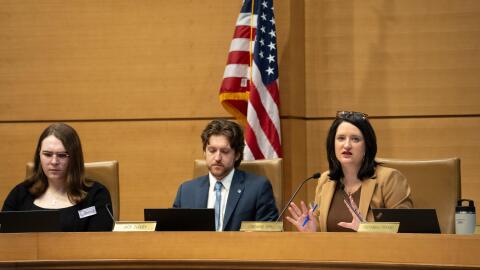Minnesota's solar energy outlook took a big step forward in mid-November with a new project coming online, bringing the conversation back into focus about the state's carbon-free electricity goal.
Billed as one of the nation's largest solar operations, Xcel Energy said phase one of its Sherco facility is now delivering power to customers around the upper Midwest. Officials said it is generating more than 220 megawatts of low-cost solar power and is expected to top 700 megawatts once the other two phases are complete.
Bria Shea, regional vice president of regulatory planning and policy for Xcel Energy, said the facility complements the company's long-standing efforts to build up wind energy capacity.
"We've made a lot of progress already but the Sherco solar project will certainly help us go even further," Shea explained.
Under Minnesota law, regional utilities are required to produce 100% carbon-free electricity by 2040. Shea pointed out Xcel is at 65% and the company feels confident about meeting the goal.
The state as a whole is at 54% and experts said with some urgency, closing the remaining gap is within reach. However, some advocates noted the process has left the door open for sources which are not truly carbon-free.
Jessica Hellmann, executive director of the University of Minnesota's Institute on the Environment, is among those who feel the state is on the right path for emission reductions in the power sector. She said a diverse energy portfolio will still be needed, along with smart management of cleaner sources. Hellman sees carbon sequestration playing a role in this balancing act.
"There's some cool science that's being done on that topic right now," Hellmann contended. "Balancing of emissions and sequestration for a small percentage of our portfolio is most definitely doable."
In the end though, Hellmann stressed sources like wind and solar need to be the top priority. In some cases, taxpayers and ratepayers are asked to help pay for these investments. But she pointed out the technologies are becoming cheaper and there will be a payoff when the connection between fossil fuels and climate change is factored in.
"Smaller climate change, smaller damages, smaller costs to manage that," Hellmann emphasized, as opposed to "larger climate change, more damage, more costs."
-
Cyndy Martin's defense indicated they are still seeking a plea agreement, but Judge Heidi Chandler set a trial date of Aug. 31, 2026, for the alleged 2024 hit-and-run.
-
Detroit Lakes senior Maggie Schander was also the vault, bars and beam champion and the runner-up in the floor exercise.
-
Warroad, Proctor-Hermantown and Bemidji represented the rural Northland in the girls hockey state tourney. Bemidji was the consolation runners-up.
-
-
Over 100 student-athletes from rural Northern Minnesota will wrestle at the 2026 state tournament in St. Paul, with a strong representation from the north-central region.
-
Conservationists and wildlife enthusiasts are pleading with the public to demand that protections in the BWCAW concerning mining interests stay in place, with a key vote in Congress pending.
-
High school students whose parents or guardians are cooperative members are invited to submit an essay for a chance to attend the Youth Tour in Washington, D.C., June 1-5, 2026.
-
Advocates said housing instability has intensified in recent months amid the presence of U.S. Immigration and Customs Enforcement agents in Minnesota.
-
Most of the petitions were filed by a newly mobilized army of volunteer lawyers with little or no experience with immigration law.
-
To enter the building, visitors and employees need to pass through a body scanner and put large items through a conveyor belt scanner.













